7 Technologies That Are Disrupting the Cable TV Business A look at new video technologies from startup companies as well as some more established players.
Opinions expressed by Entrepreneur contributors are their own.
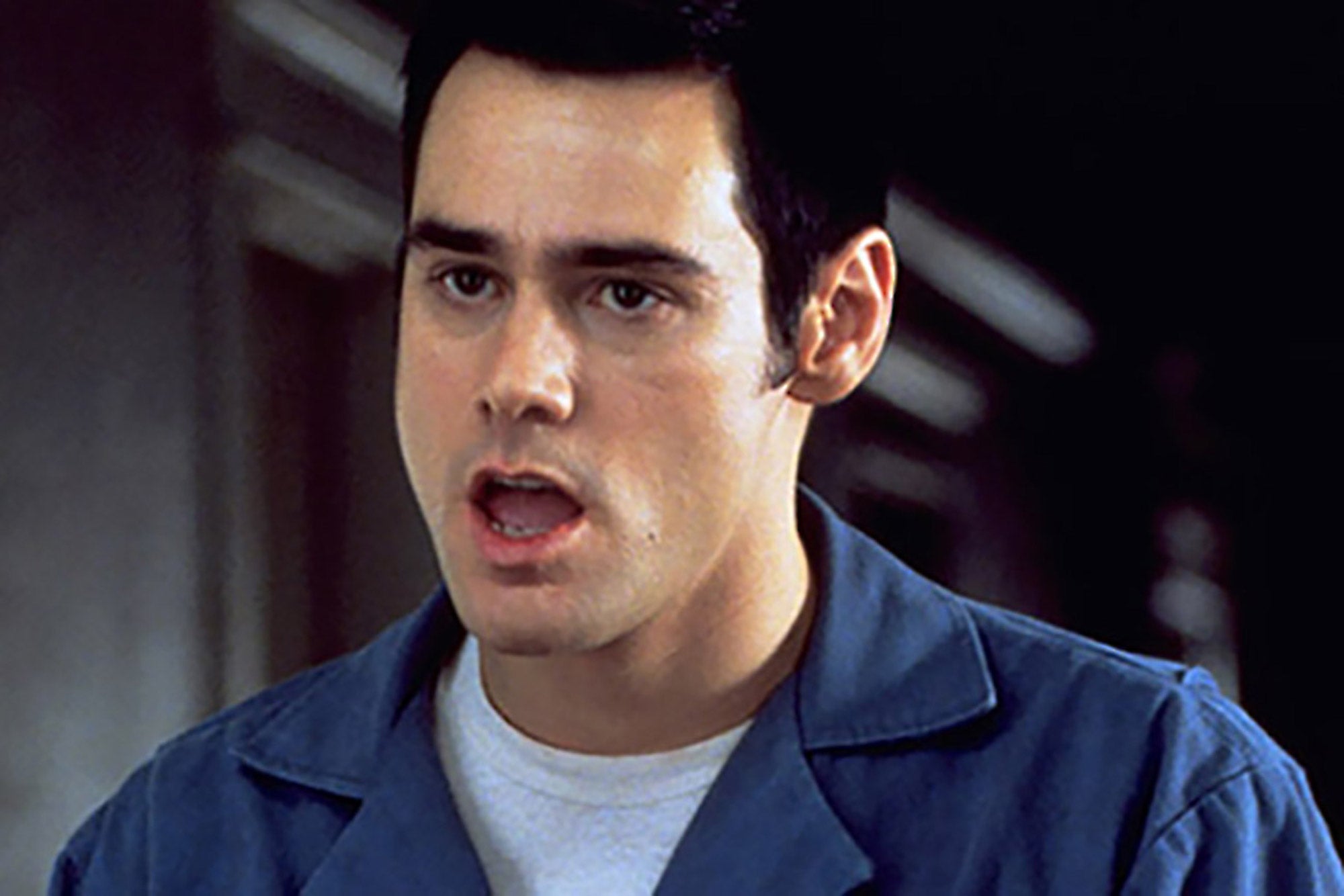
From big media entities like Google announcing its new Chromecast device, to startups such as Boxee's reported $30 million sale to Samsung, companies of various sizes and specialties have made recent news in TV technology. A space that's rife for disruption, the online video arena has seen players from Apple to Netflix wrestle for years to declare living room dominance. But as a complex ecosystem that involves content protection, syndication rules and ad targeting, this market has been difficult to master.
Regardless, innovation in TV tech is happening. Whether it leads to a true sea change or simply involves new technologies that complement existing ones remains to play out. "Entrepreneurs want to provide the tools to allow content owners to make video more social, to deliver it to more devices, with different sized screens, in as many formats and business models as possible," says Dan Rayburn, principle analyst with Frost & Sullivan and executive vice president of StreamingMedia.com.
These seven technologies, whether developed by industry giants or by inspired upstarts, do just that. They're changing the way people view video content, wherever they watch it.
Aereo
As innovative and disruptive as a technology can get, Long Island City, N.Y.-based Aereo lets user stream and record live, broadcast television to their internet-connected devices, including iPads, iPhones, Apple TV, Roku, and popular web browsers. Capturing the video through an antenna physically located in one of their warehouses, Aereo takes programs that are freely available over-the-air and routes them through the web so they can be watched on handheld screens for as little as $8 per month.
CBS has sued the startup (and lost) to block the service in New York City. Undeterred, Aereo has gone on to launch in Boston and Atlanta. Next up, Aereo will roll out service across Utah and in Chicago. But despite all the dust the company has kicked up, it hasn't revealed subscriber numbers, so there's no telling how popular the service actually is.
Related: TV Startup Aereo Countersues Big Broadcaster
Apple TV
Though co-founder Steve Jobs regarded the television space as a "hobby," Cupertino, Calif.-based Apple has seen more success than any other tech company (outside of gaming giants Microsoft and Sony) in the streaming device market, with more than 13 million Apple TVs sold to date.
Initially little more than a living room storefront for the iTunes Store, the $99 puck-sized television peripheral has undergone upgrades over the years integrating Apple's Airplay technology to allow video streaming from iOS devices, and incorporating outside content sources to its operating system. Now the device sports dedicated HBO, ESPN and Sky News apps, and appears to be a full-fledged platform in the making, much like the iOS Appstore.
But to date, the system has remained closed to outside developers and seen underwhelming support from Apple, despite chief executive Tim Cook calling television "an area of intense interest."
Fan
Mastering the art of the controlled roll-out, San Mateo, Calif.-based Fan (formerly Fanhattan) began as an iOS-based social discovery and viewing platform, allowing users to watch and share their favorite shows with friends over Apple handheld devices. In February, the company released a web-based interface which upped their catalog to 29 online streaming video services, some of which were unavailable on iOS, ranging from Crackle to HBO Go.
For the company's third act, it will wade into the rough set-top box waters with cable-connected device that will allow its more than 1 million users to search, discover and watch shows from streaming video services like Netflix and Hulu Plus, as well as channels like Comedy Central and the Food Network -- all on their TV. Details like pricing, cable company partnerships and availability are scant, but the Yves Behar-conceived device and remote are lust-worthy for their design alone, making this one worth watching.
Google Chromecast
After lackluster adoption of its Google TV platform, the Mountain View, Calif.-based search giant has rebooted its connected television efforts with the Google Chromecast. A welcome departure from its previous glitchy living room hardware, this simple device connects to a television's HDMI port and can receive streaming video signals from Android or iOS devices.
At launch, only four mobile apps support Chromecast (Netflix, YouTube, Google Music, and Google TV and Movies), but the dongle can also mirror content from a Chrome browser running on a Mac or PC, allowing other video sources to be streamed to the bigger screen. A lack of dedicated apps and underwhelming browser mirroring performance have given critics pause, but one universal praise is Chromecast's $35 price tag, a cost that is hard not to love. The device sold out at on Amazon and Best Buy days after its launch, but Google has not disclosed any sales figures.
Related: Will Google's Chromecast Revolutionize Your Living Room -- and Conference Room?
NimbleTV
Combining streaming, place-shifting, and digital video recording, New York City-based startup NimbleTV promises to let users watch live and recorded cable television programing from anywhere on an array of devices.
Say, for example, that you're a native Pittsburgian and an avid Pirates fan who relocated to Phoenix. With NimbleTV, you can watch your hometown programming, without having to attach a Slingbox to your TV. And the cloud-based technology can be watched on a computer in a browser, on iOS devices or on TVs via Airplay on Apple TV or one a private channel on Roku.
Still in invite-only beta and only available with programming from New York City television providers, the service has a way to go. But with a proposition that pays cable companies, this idea has potential.
Simple.TV
A DVR that lets users watch live or recorded television on internet-connected devices, Tiburon, Calif-based Simple.TV gives users flexibility in watching and storing their video content with a simple device that connects to an aerial antenna or basic cable cord, an ethernet port on your home network and a USB hard drive.
Up to five users can watch programs streaming from the $149 device simultaneously on iOS devices, computers or Roku. And with Boxee being bought by Samsung, Simple.TV is making a play for orphaned users of the formers' services, by offering $100 off the device. Premium service costs $59 annually, but can be bundled into the purchase of the Simple.TV DVR, and includes automating scheduled recordings, a full electronic program guide and streaming to apps and browsers anywhere in the world.
There's no information on how many people use the service, but since starting last year with a Kickstarter campaign that eclipsed $225,000 ($125,000 was its goal), the company has secured more than $5.7 million in funding to help bring its service to the next level.
Roku
With more than 5 million streaming media devices sold, Roku is the closest competitor to Apple for overthrowing the traditional television models. And with several low-priced devices ranging from $49 to $99 (as well as Roku-loaded smart devices made by third-party companies) that stream from sources from PBS to MLB, there's a lot of content to love.
The Saratoga, Calif.-based company recently received $60 million in funding, drawing support from established media outfits like News Corp., Hearst Corp. and British Sky Broadcasting. Roku even baked a special version of Angry Birds into its interface, showing that it's not afraid to fly high in this space.
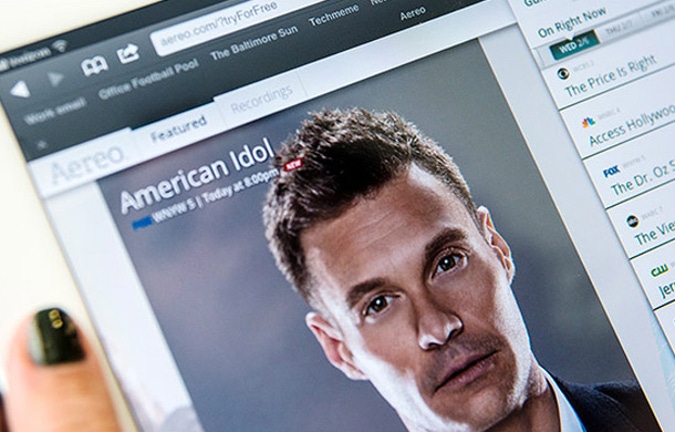 CNN Money
CNN Money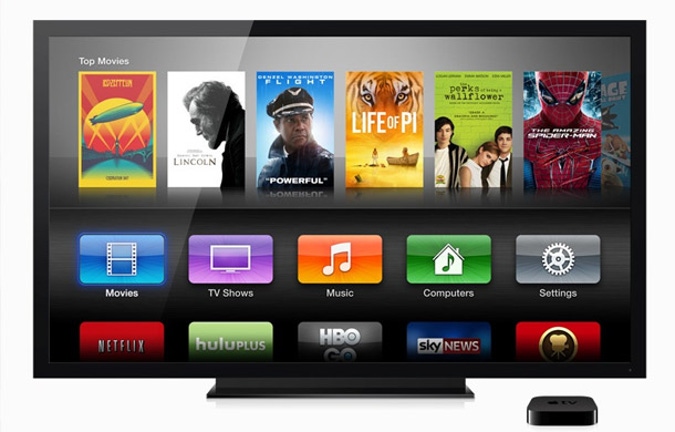 Apple
Apple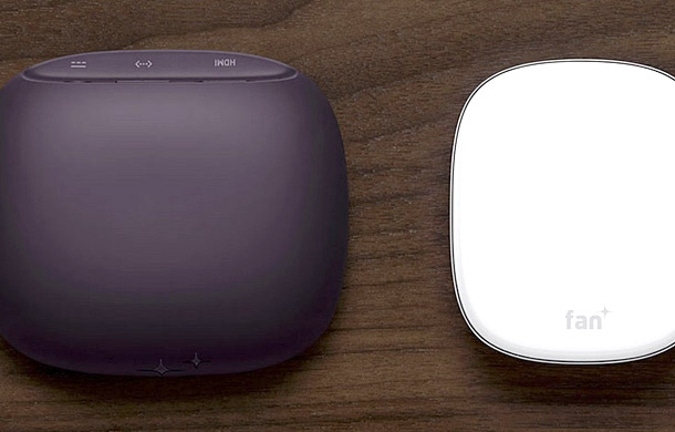 Fan
Fan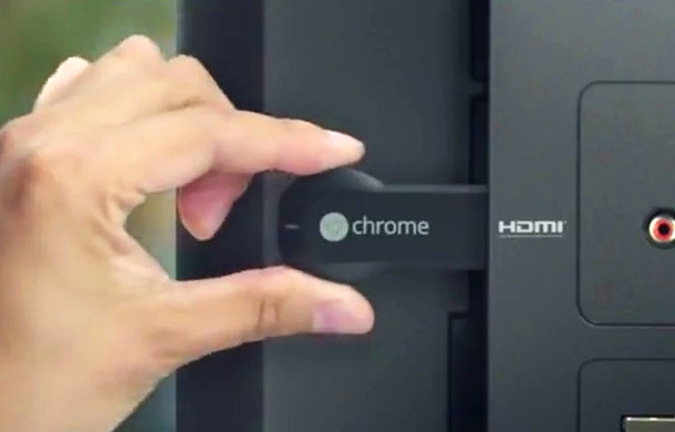 Google
Google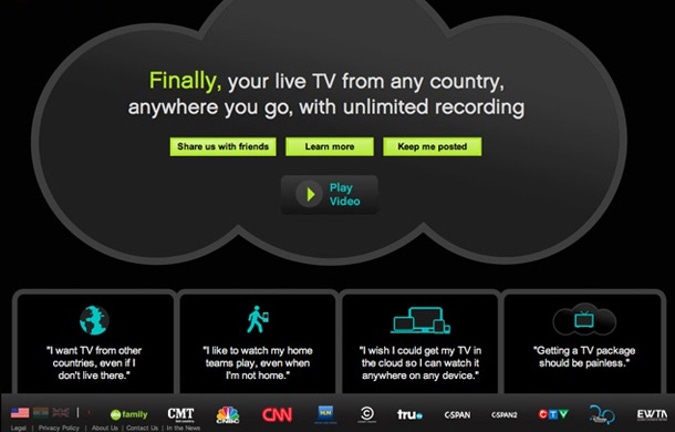 NimbleTV
NimbleTV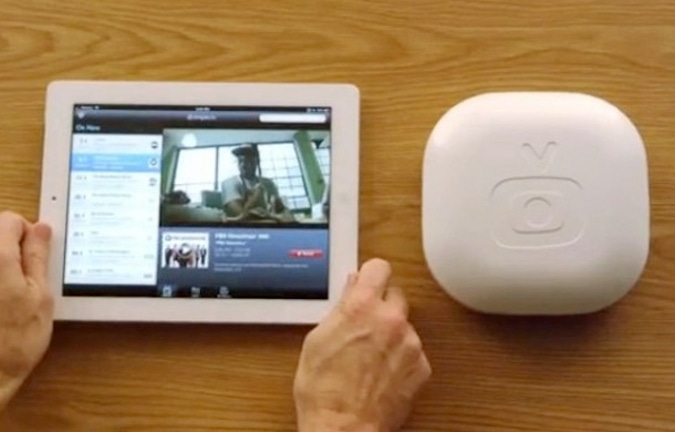 Engadget
Engadget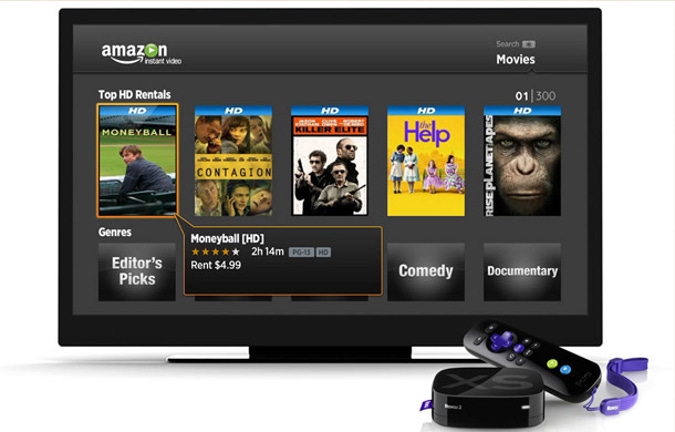 Digital Trends
Digital Trends








